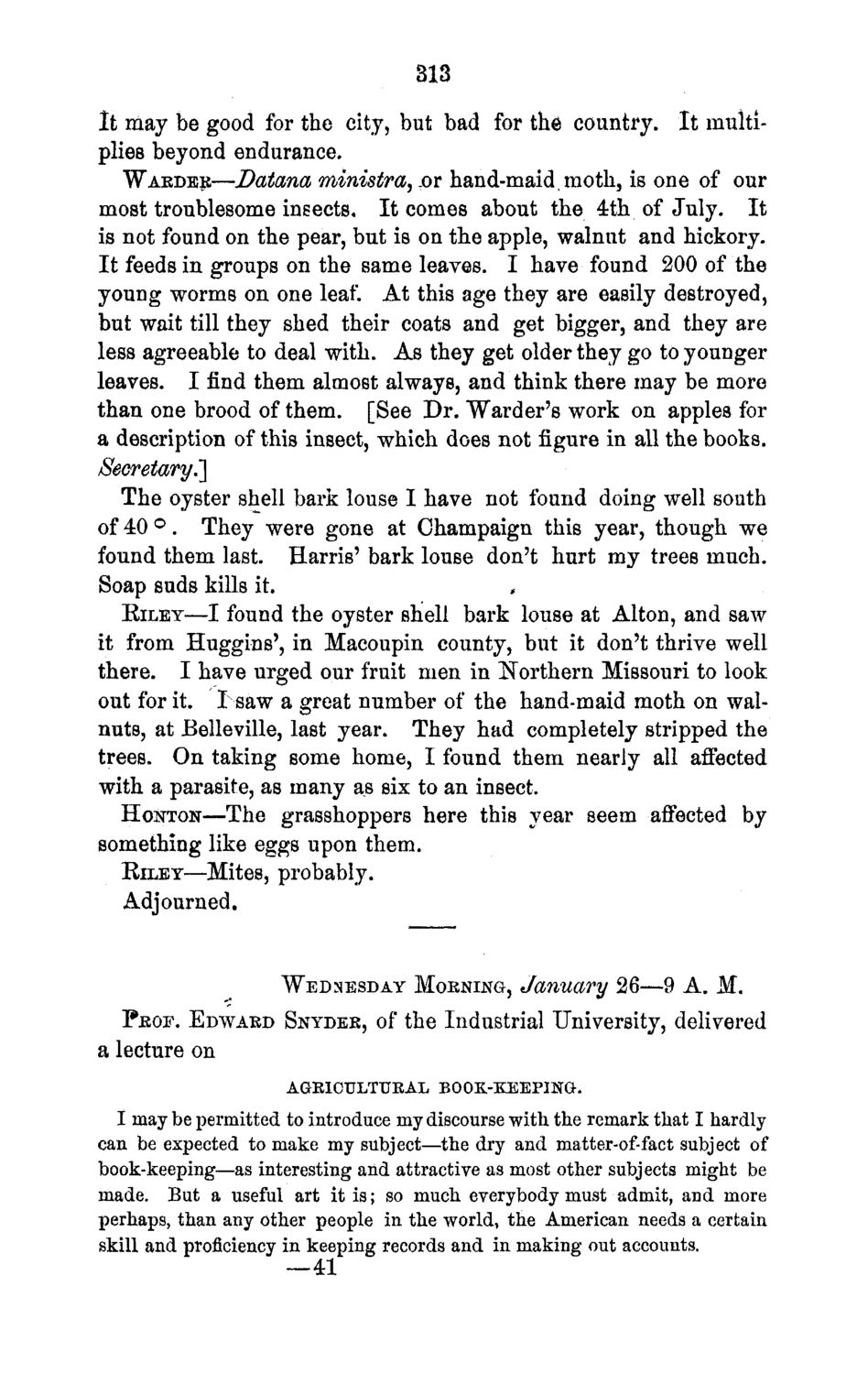| |
| |
Caption: Board of Trustees Minutes - 1870
This is a reduced-resolution page image for fast online browsing.

EXTRACTED TEXT FROM PAGE:
313 It may be good for the city, but bad for the country. It multiplies beyond endurance. WARDER—Datana ministra, .or hand-maid,moth, is one of our most troublesome insects. It comes about the 4th of July. It is not found on the pear, but is on the apple, walnut and hickory. I t feeds in groups on the same leaves. I have found 200 of the young worms on one leaf. At this age they are easily destroyed, but wait till they shed their coats and get bigger, and they are less agreeable to deal with. As they get older they go to younger leaves. I find them almost always, and think there may be more than one brood of them. [See Dr. Warder's work on apples for a description of this insect, which does not figure in all the books. Secretary^ The oyster shell bark louse I have not found doing well south of 40 ° . They were gone at Champaign this year, though we found them last. Harris' bark louse don't hurt my trees much. Soap suds kills it. E I L E Y — I found the oyster shell bark louse at Alton, and saw it from Huggins', in Macoupin county, but it don't thrive well there. I have urged our fruit men in Northern Missouri to look out for it. I saw a great number of the hand-maid moth on walnuts, at Belleville, last year. They had completely stripped the trees. On taking some home, I found them nearly all affected with a parasite, as many as six to an insect. HONTON—The grasshoppers here this year seem affected by something like eggs upon them. RILEY—Mites, probably. Adjourned. WEDNESDAY MORNING, January 26—9 A. M. PROF. EDWARD SNYDER, of the Industrial University, delivered a lecture on AGRICULTURAL BOOK-KEEPING. I may be permitted to introduce my discourse with the remark that I hardly can be expected to make my subject—the dry and matter-of-fact subject of book-keeping—as interesting and attractive as most other subjects might be made. But a useful art it is; so much everybody must admit, and more perhaps, than any other people in the world, the American needs a certain skill and proficiency in keeping records and in making out accounts. —41
| |